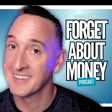
😌 Why Money Is Important, Smart Money Habits, and Boiled Peanuts! 🥜
💳 Money impacts every aspect of our lives—from personal security to emotional well-being. In this episode, we cover why money is important and how it helps us design lives filled with freedom, fulfillment, and happiness.
Watch and Subscribe on YouTube
✏️We explore strategies to manage finances effectively, build habits for financial independence, and even share some personal anecdotes about boiled peanuts and first jobs!
In this episode, we discuss:
1️⃣ Money and Happiness: The link between financial security and reduced stress, plus the income thresholds where happiness begins to plateau.
2️⃣ Relationships and Money: How financial conflicts arise in partnerships and ways to foster harmony through shared goals and open communication.
3️⃣ Generational Cycles: Using financial literacy to break cycles of poverty and create stability for future generations.
4️⃣ Building Smart Money Habits: Simple strategies like tracking expenses, automating savings, and filtering spending through personal values.
5️⃣ Education and Financial Freedom: The role money plays in accessing quality education and extracurricular opportunities for yourself or your children.
🔗 Carla's Links:
📘 Start Thinking Rich: 21 Harsh Truths to Take You from Broke to Financial Freedom
🔗 David’s Links:
🍏 Forget About Money on Apple Podcast
🎧 Forget About Money on Spotify
#personalfinance #financialfreedom #moneyhabits
🎧 Listen & Subscribe: Don’t miss out on more conversations about achieving financial independence and living intentionally. Hit subscribe and the bell icon 🔔 to stay in the loop!
📜 Disclaimer: This episode is for informational and entertainment purposes only and is not financial advice. For personalized guidance, consult a financial professional.

